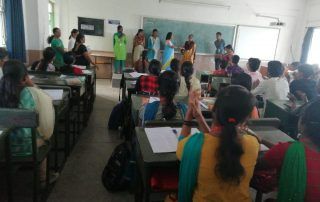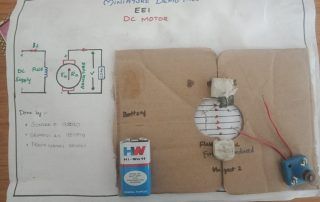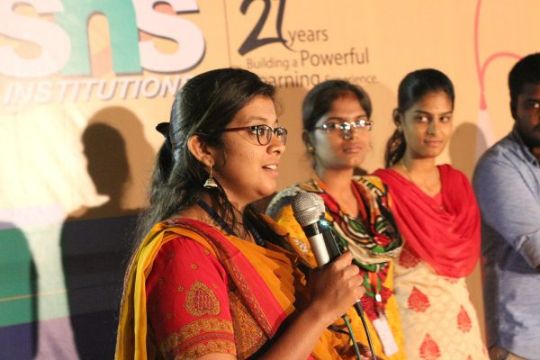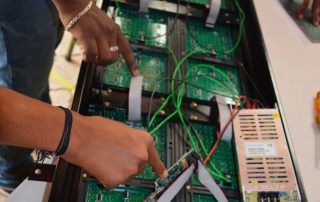department of electronics and communication engineering
student development ACTIVitiES
Various number of student development activities are constantly being practiced in each classrooms, enforced by our Center of Learning and Teaching.

Problem-Based Learning

DEFENSE Training

Activity Based Learning
Project-based-Learning
Activity-based-Visual-Thinking

Management Games

Role Play

Peer Group Learning

Cross Sectional View of Wing

cut section of tapered wing section

Shear Center

Cross Sectional View of Wing

cut section of tapered wing section

Shear Center

industrial
case study
Naturally, students are more inductive than deductive, they learn better from examples than from logic. So, we believe that the use of case studies is a very effective classroom technique. Students will be provided with an industrial case study linked with the concept or subject, where they got to explore how their learning are applied in the real world situations. This helps the students to actively engage in figuring out the principles from the examples.
- Industry Case Study on Automatic Hand Sanitizer prepared by Mr.M.Saravanan, Assistant Professor in association with Wizard Systems
- Industry Case Study on ” Success Story of Flipkart” prepared by Mr.M.Jagadesh , Assistant Professor related to Flipkart Company
- Industry Case Study on ” Image sensor in Industry” prepared by Mrs.S.Prema, Assistant Professor
- Industry Case study on “Manifold absolute pressure sensor in Digital electronics ” prepared by Mrs.S.Prema, Assistant Professor
- Industry Case Study on ” Fabric based FM radio kit ” prepared by Mrs.S.Prema, Assistant Professor
- Industry Case Study on “Amplifiers ” prepared by Dr.J.Ajayan, Assistant Professor (SG) related to Analog Electronics Industry for subject Analog Electronic Circuits
- Industry Case Study on “RF Amplifiers ” prepared by Dr.J.Ajayan, Assistant Professor (SG) based on Texas Instruments for subject Analog Electronic Circuits
- Industry Case Study on “Challenges in the design of next generation processors ” prepared by Dr.J.Ajayan, Assistant Professor (SG) based on Intel for subject Analog Electronic Circuits
- Industry Case study on ” Power Quality Monitoring using Digital Signal Processors”prepared by Mrs.J.Jayageetha, Associate Professor related to Texas Instruments for Subject Digital Signal Processing
- Industry Case study on ” Digital Signal Processors” prepared by Mrs.J.Jayageetha, Associate Professor for Subject Digital Signal Processing related to Texas Instruments
- Industry Case Study on ” Hardware Codesign for Electrical Machines” prepared by Mr.S.Vigneswaran, Assistant Professor for Subject Electrical Engineering and Instrumentation
- Industry Case Study on ” Impacts of the dv/dt rate on MOSFETS” prepared by Mr.T.Prabu , Assistant Professor for subject Analog elctronic Circuits related to Toshiba
- Industry Case study on ” Why Fiber optic cables dominate copper cables in IT Industry by Mrs.R.Prabha, Associate Professor for subject Transmission Lines and Wave guides related to Cable Express Industry
- Industry Case study on ” Composite Coaxial Cables” by Mrs.R.Prabha, Associate Professor for subject Transmission Lines and Waveguides related to Galaxy wire and Cable Industry
students'
mini projects
Project-based learning is an instructional approach, which helps the students in developing knowledge and skills by engaging in projects and solving real world challenges/problems.
We practice project based learning by encouraging the students to do minimum two mini project per semester. Students are progressively taking up the tasks and projects to pad up their skill-set.







